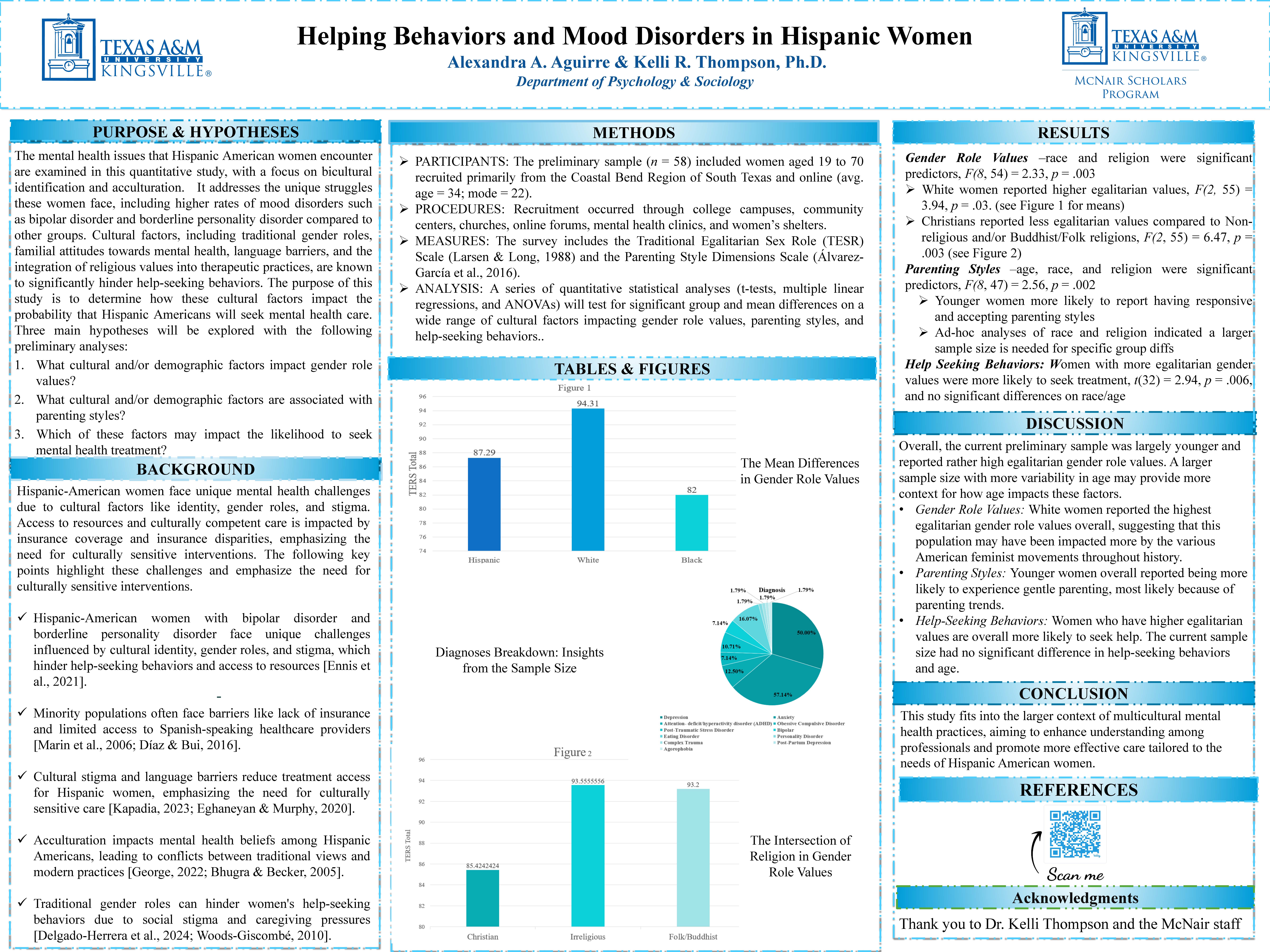This study investigated the impact of cultural and demographic factors on gender role values, parenting styles, and help-seeking behaviors among Hispanic American women. The three main hypotheses explored were: (1) What cultural and/or demographic factors impact gender role values? (2) What cultural and/or demographic factors are associated with parenting styles? (3) Which of these factors may impact the likelihood of seeking mental health treatment? A quantitative approach was employed, utilizing demographic data and survey results to quantify barriers to mental health access. Preliminary results indicate that race and religion significantly predict gender role values, with White women reporting higher egalitarian values (F(2, 55) = 3.94, p = .03), while Christians reported lower egalitarian values than Non-religious and Buddhist/Folk religious participants (F(2, 55) = 6.47, p = .003). Age, race, and religion also influenced parenting styles, with younger women more likely to report responsive and accepting styles (F(8, 47) = 2.56, p = .002). Additionally, women with more egalitarian beliefs were more likely to seek treatment (t(32) = 2.94, p = .006), with no significant differences based on race or age. This research aims to inform best practices for mental health professionals, ultimately enhancing care tailored to the unique needs of Hispanic women.
Faculty Mentor: Dr. Kelli Thompson
Department of Psychology and Sociology


